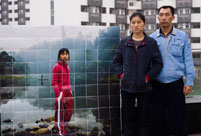BEIJING, Oct. 24 -- Worries from some observers about a "hard landing" of China's economy have eased as China's gross domestic product (GDP) in the third quarter shows signs of sound and sustainable growth, although skepticism about China's reform remains.
China's GDP climbed 7.8 percent in the third quarter compared to a year ago, well above the full-year target of 7.5 percent, the National Bureau of Statistics said.
The third-quarter result is in line with market expectations and keeps the country on track to meet its 7.5-percent annual growth target, though growth may dip again in the final quarter.
However, some observers remain skeptical of China's reform as the Shanghai pilot free trade zone still imposes many restrictions on investors.
"The wide-ranging restrictions reflect jockeying among Chinese agencies over how broadly and quickly to open cloistered sectors to foreign competition," the Wall Street Journal said.
The Shanghai pilot free trade zone tried to relax restrictions on financial and service regulations, which could be rejected by some governmental agencies and large state-owned enterprises, Japanese newspaper Asahi Shimbun said.
As a matter of fact, this skepticism is groundless. The Shanghai free trade zone started a series of reforms, which included the testing of a convertible yuan and wider opening of 18 service sectors.
Those measures are expected to unleash economic potential in the zone over the next two to three years.
J.P. Morgan China economist Zhu Haibin suggested looking at the bigger picture, saying that reform in the free trade zone does not only concern the financial sector.
"Reform in the zone covers multiple areas of trade, investment, finance and administrative management, with its core being a re-definition of the relationship between the government and the market," Zhu said.
China has vowed to accelerate economic transformation, make full use of fiscal, financial and pricing and other policy instruments, and pursue reforms of the budgetary system to make it more open, transparent, standardized and inclusive.
Chinese Premier Li Keqiang on Monday said stepped-up reform will yield more systematic dividends and China's economy has a good foundation for sustainable and healthy growth.
The Chinese government has pledged to deepen reforms concerning matters subject to government examination and approval, so as to provide quality public services and maintain social fairness and justice.
Less tax for small businesses and more financial support for local government are both on the cards as the Chinese leadership considers how to reform the fiscal system.
Fiscal reform is crucial to China's economic overhaul. Over-reliance on land sales for fiscal revenue and poor real estate market control are at the heart of changes to the tax system.
The concrete actions of pushing ahead with administrative, financial and tax reforms highlight China's determination to make sustainable and healthy economic growth.
"In advancing reform, the important thing is to take action," Chinese Premier Li Keqiang said. "Talking the talk is not as good as walking the walk."
 Low wages Indian migrant laborers
Low wages Indian migrant laborers Five fighters in flight training
Five fighters in flight training London mayor hails free trade, subway system on China tour
London mayor hails free trade, subway system on China tour Different eye catching shows at housing fairs in China
Different eye catching shows at housing fairs in China Special family portraits call attention to left-behind children
Special family portraits call attention to left-behind children Tibetan girl helps mobilize volunteers onlin
Tibetan girl helps mobilize volunteers onlin Lingerie show dazzles Wuhan Motor Show 2013
Lingerie show dazzles Wuhan Motor Show 2013  Running in fun customs at Beijing Int'l Marathon
Running in fun customs at Beijing Int'l Marathon  Weekly Sports Photos
Weekly Sports Photos Chinese riot police take Liberia peacekeeping mission
Chinese riot police take Liberia peacekeeping mission World has never been dark-- a blind kid’s life in Tibet
World has never been dark-- a blind kid’s life in Tibet Change to law may make it easier to sue polluters
Change to law may make it easier to sue polluters UNESCO world heritage site: Montale Tower
UNESCO world heritage site: Montale Tower U.S. Senate leader announces bipartisan deal
U.S. Senate leader announces bipartisan deal Chinese screen goddesses from Beijing Film Academy
Chinese screen goddesses from Beijing Film Academy Day|Week|Month